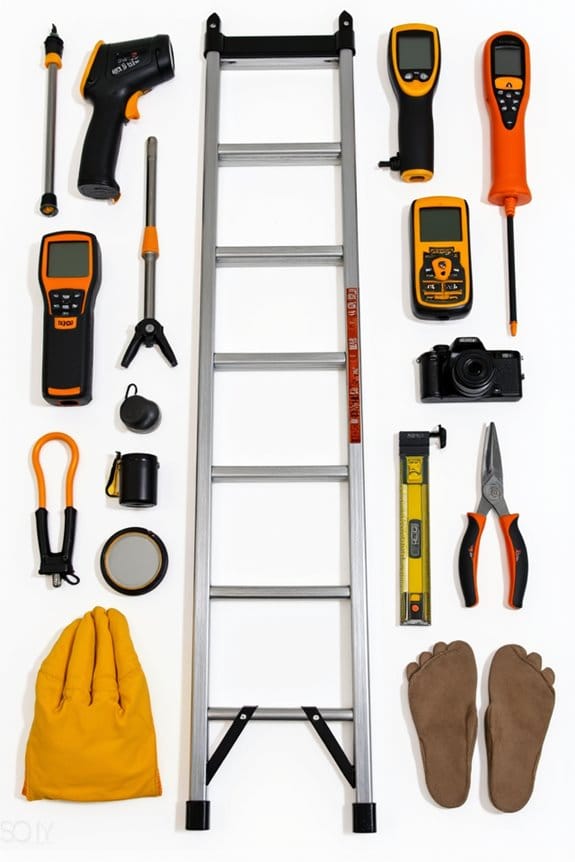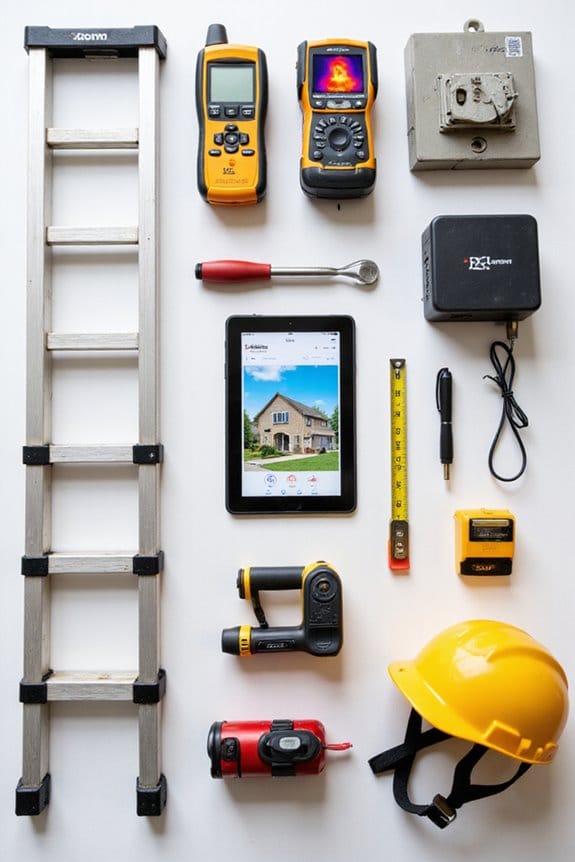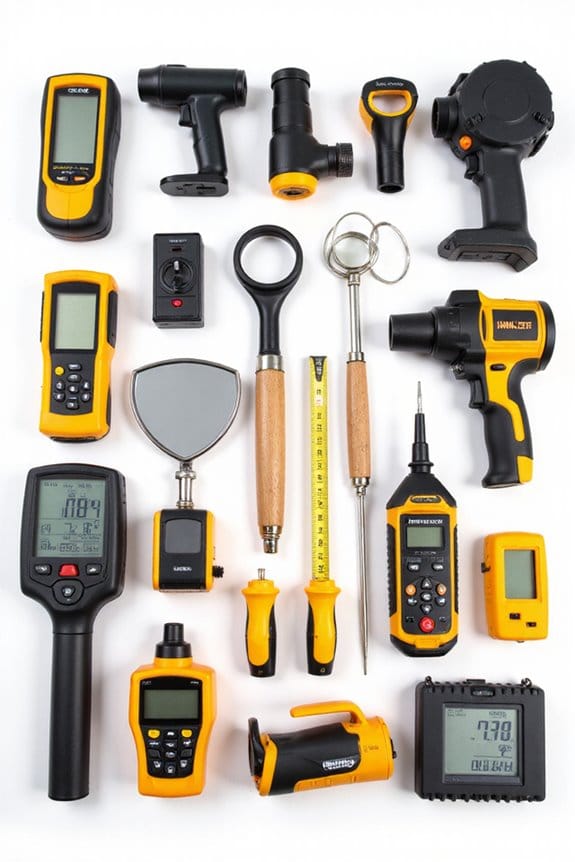Not all home inspectors are the same. Here’s what you should know:
- Licensing varies by state—some are strict, others not.
- Training levels differ—some take 90 hours, while others might not require any.
- Experience matters—an inspector’s background can affect their findings.
So, it’s essential to pick wisely. Look for credentials and reviews to find a good fit. Interested in what else makes a great inspector? Let’s keep exploring!
Key Takeaways
- Home inspectors vary significantly by state due to differing licensing and certification requirements, impacting their training and credibility.
- The quality of training and education for home inspectors can differ, with some states mandating extensive classroom hours while others do not require licensing at all.
- Standards of inspection practices are not uniform, leading to variances in how inspections are conducted and reported across different inspectors.
- Experience levels among inspectors can greatly influence the quality of inspections, with seasoned professionals typically being more reliable than newer inspectors.
- Reputation and communication skills of inspectors can vary, affecting how effectively they convey findings and address client concerns.
Variability in Licensing Requirements
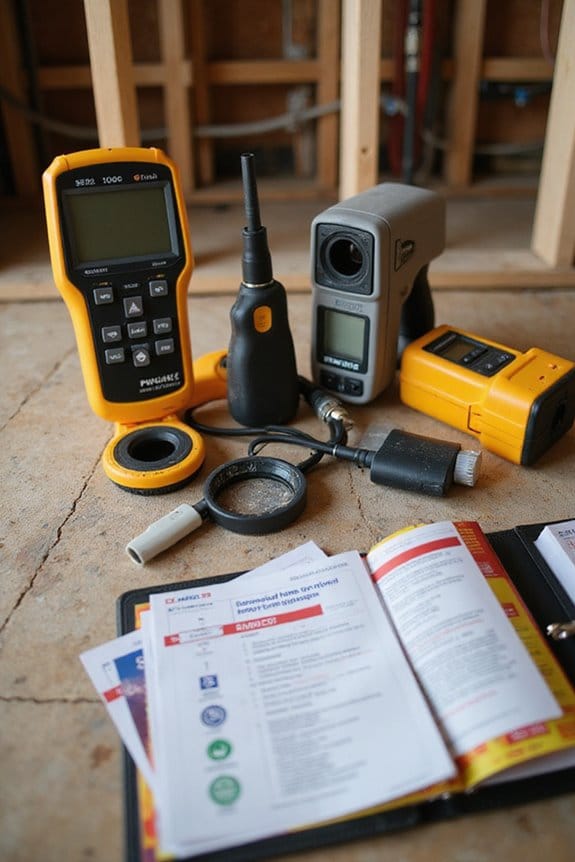
When you think about hiring a home inspector, you might assume they’re all cut from the same cloth, but that’s far from the truth. The variability in licensing requirements can be surprising. Here are a few key points:
- State Regulations: Some states have strict licensing through dedicated boards, while others don’t require licenses at all.
- Licensing Disparities: States like Maryland demand extensive training, while others recommend certification without making it mandatory.
- Insurance Needs: Licensed inspectors usually need liability insurance, but it’s not always the case in unlicensed states.
Differences in Training and Education
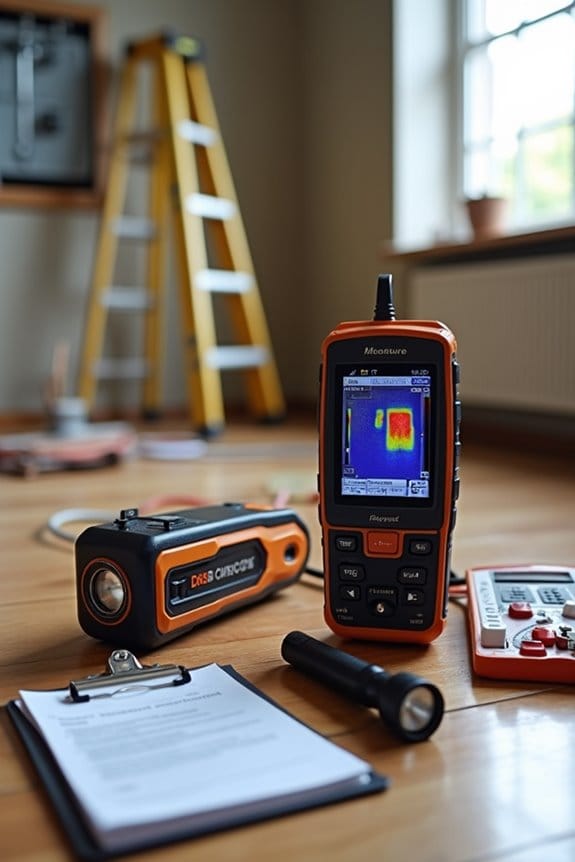
While it might seem like all home inspectors come equipped with the same knowledge, the reality is quite different. Here’s why:
- Curriculum Diversity: States vastly differ in what they teach. For example, Louisiana mandates 90 hours of classroom education plus hands-on training, while California recommends a 120-hour course but has no licensing requirement at all.
- Training Methodologies: Some states require practical field training, which is essential. It’s one thing to read about inspections; it’s another to actually do them!
- Certification Variability: Not all inspectors need to pass an exam, which can affect their expertise.
Standards of Inspection Practices
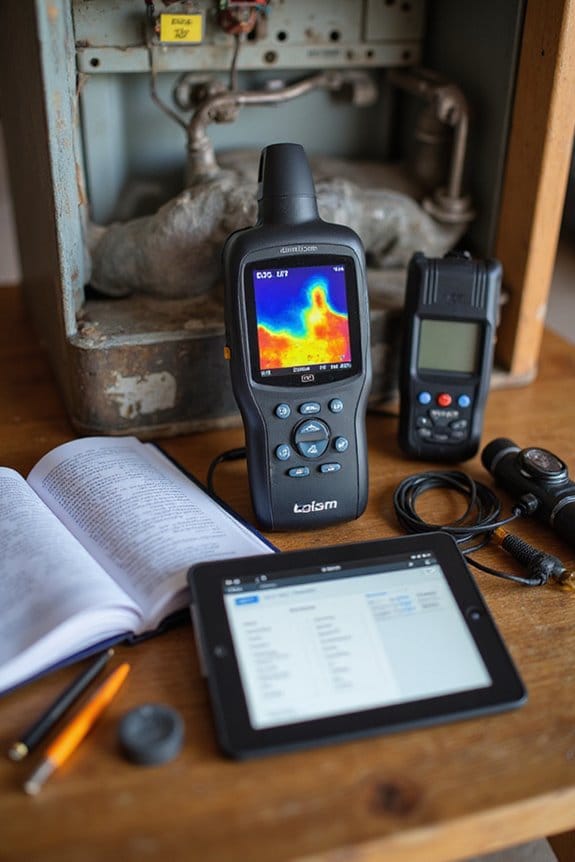
Understanding the standards of inspection practices is essential for both home inspectors and clients alike. These guidelines establish the inspection criteria that guarantee consistency and quality in our profession. Here’s a quick overview of what they cover:
- Scope: Inspections focus on visible and accessible areas, like the roof, plumbing, and electrical systems.
- Reporting: We must clearly identify any defects and provide recommendations for repairs or further evaluation.
- Limitations: Keep in mind that we can’t see hidden defects and personal belongings aren’t moved during inspections.
These industry standards not only protect clients but also give inspectors a framework to follow. It’s like having a rulebook—without the boring parts! Remember, it’s a snapshot of the property’s condition at that moment, not a crystal ball for the future.
Impact of Experience and Professional Background
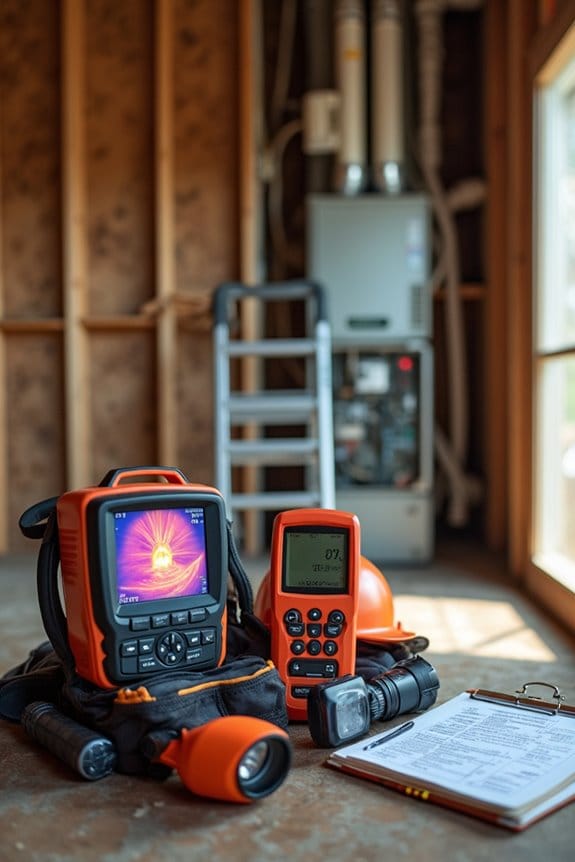
Experience and professional background markedly shape the quality of a home inspection. Here’s why that matters:
- Experience Recognition: Inspectors with years under their belts often spot subtle issues that newer ones might miss. Having conducted over 1,000 inspections grants them a keen eye for detail.
- Architectural Insights: Those trained in architecture or engineering can understand complexities, identifying defects that aren’t always visible.
- Diverse Backgrounds: Inspectors with construction experience know how to pinpoint workmanship issues that could affect a home’s integrity.
In my opinion, a seasoned inspector’s ability to prioritize problems based on safety can save you headaches down the road. So, when choosing an inspector, consider their experience and professional background—it really makes a difference!
Regulatory and Renewal Procedures
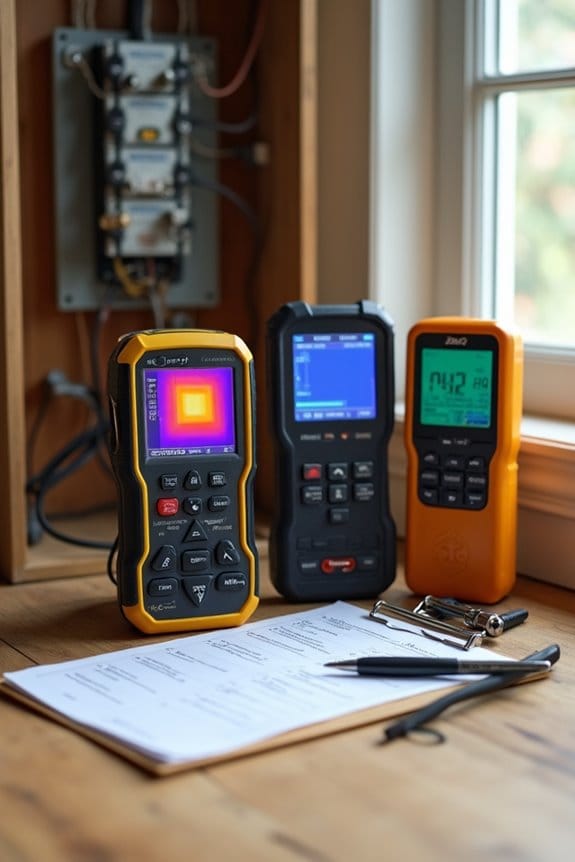
Choosing a home inspector isn’t just about their experience; understanding the regulatory and renewal procedures that govern their practice can be just as important. Here are some key points to reflect upon:
- Regulatory Differences: Licensing requirements vary by state. Some states, like Connecticut, require pre-licensing education and ongoing continuing education (CE) every two years.
- Renewal Timelines: Most states have a renewal cycle of one to two years. Inspectors need to complete state-approved CE courses and pay renewal fees, which can vary.
- Internship Requirements: New inspectors often must complete supervised inspections—sometimes up to 200—before they can work independently.
The Role of Certification Bodies
While you might think all home inspectors are created equal, the role of certification bodies can make a significant difference in the quality of service you receive. Here’s what you should know:
- Certification Benefits: Organizations like InterNACHI and ASHI provide essential training and standards of practice. They give inspectors credibility and help uphold industry standards, which is a win-win for everyone involved.
- Certification Challenges: However, the lack of state licensing in places like California means not all inspectors have the same level of training. Some might skip necessary education, leading to varying service quality.
In the end, choosing a certified inspector can save you from headaches down the road. It’s worth doing your homework!
Consumer Implications of Inspector Selection
How do you know if you’re picking the right home inspector? It’s essential to take into account a few key factors to avoid future headaches. First, check their inspector reputation. Look for reviews and testimonials from previous clients. A solid track record builds consumer trust and gives you peace of mind.
Second, verify they’re licensed and meet state requirements. This isn’t just a formality; it guarantees a minimum level of competency.
Third, ask about their experience and the scope of their inspections. Some inspectors provide detailed reports, while others may skim the surface.
Finally, never underestimate the importance of communication. A good inspector should be willing to answer your questions and explain their findings clearly. Happy inspecting!
Inspection Methodologies and Reporting
Selecting the right home inspector isn’t just about finding someone with a good reputation; it’s also about understanding their inspection methodologies and reporting styles. Here’s what to contemplate:
- Inspection Techniques: Some inspectors cover around 2,000 items, while others focus on key elements. A thorough inspection can reveal hidden defects, so don’t skimp here.
- Report Clarity: Inspectors vary in how they report findings. Some provide detailed, multi-page documents with photos, while others stick to brief summaries. I recommend reviewing sample reports beforehand to gauge clarity.
- Special Tools: Inspectors might use thermal imaging or moisture meters to uncover issues. The right tools can make a considerable difference, particularly when using moisture meters for moisture detection levels.
Ultimately, the depth of the inspection and the clarity of the report can greatly impact your home-buying experience.
Continuing Education and Professional Development
When it comes to home inspections, you might not realize just how important continuing education is for inspectors. Here’s why it matters:
- Inspector Qualifications: States like Ohio require 14 hours of CE every year. This keeps inspectors sharp and knowledgeable.
- CE Course Diversity: The courses cover essential topics, from safety protocols to environmental issues. This variety guarantees inspectors stay current with industry trends.
- Professionalism: Completing these courses fosters credibility. It shows clients that their inspector is committed to ongoing learning.
- Flexibility: Many courses are online and self-paced, making it easier than ever for inspectors to fulfill their CE requirements.
How to Choose a Qualified Home Inspector
Finding the right home inspector can feel a bit challenging, especially with so many options out there. Here’s a quick guide to help you choose a qualified inspector:
- Verify Licensing and Certification: Check that they have a valid license and any certifications from respected organizations like InterNACHI or ASHI.
- Assess Education and Training: Look for inspectors with at least 60 hours of approved training and practical field experience.
- Evaluate Experience: Prioritize inspectors who’ve conducted multiple inspections on various property types.
- Review Reputation: Read reviews and ask for sample reports to gauge thoroughness.
- Confirm Communication Skills: Choose someone who can explain findings clearly and provide timely reports.
Frequently Asked Questions
Do Home Inspectors Need Insurance to Operate Legally?
Yes, home inspectors need insurance to operate legally in many states. Insurance requirements vary, but having coverage protects against home inspector liability, ensuring I’m safeguarded from potential lawsuits and claims arising from inspections.
How Can I Verify a Home Inspector’s Credentials?
Like peeling an onion, verifying a home inspector’s credentials reveals layers of inspection qualifications. I check inspector reviews, confirm their licensing, and guarantee they’ve passed required exams to find a trustworthy professional for my needs.
What Should I Expect During a Home Inspection?
During a home inspection, I expect a thorough review using an inspection checklist. The inspector typically follows an inspection timeline, starting outside and working in, documenting any issues to address later. It’s quite informative!
Are Home Inspection Fees Standardized Across Regions?
Home inspection fees are like a patchwork quilt, showcasing inspection cost variations across regions. I’ve noticed significant regional pricing differences, often reflecting local demand, property size, and inspector expertise. It’s essential to research before committing.
Can I Attend the Home Inspection Process?
Absolutely, I encourage home buyer involvement during the inspection. It’s a chance to ask questions, understand the findings, and gain valuable insights. The benefits of being present far outweigh relying solely on a written report.




